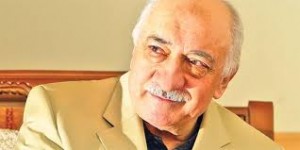Turkey’s embattled prime minister on Saturday ratcheted up the rhetoric against a U.S.-based Muslim cleric seen as a threat to his government, for the first time directly suggesting followers have infiltrated the police and judiciary and are pushing a corruption probe against his allies.
Analysts meanwhile pointed to growing evidence of an uneasy alliance between Recep Tayyip Erdogan’s Islam-based government and the secular military, which for years regarded him with suspicion.
The scandal is revealing the deep cracks among Turkey’s elite, spilling out into the public the power struggles that have until now mostly remained hidden. Turks are watching with disbelief as two major Islamic groups go after each other so transparently.
Erdogan has frequently pointed to outside forces as trying to destabilize the country — most recently during massive summer anti-government protests — but he has broadened his claims in the latest crisis to include domestic foes working as “pawns.”
Many believe the probe was orchestrated by followers of Pennsylvania-based spiritual leader Fethullah Gulen, a moderate preacher whose network of Muslim believers command a global empire of business, media and education interests.
Until recently, Gulen was a government backer — but the power feud between Erdogan and Gulen has become increasingly public. In recent weeks, Gulen has prayed that “God bring fire to their houses,” and Erdogan responded with a promise to “go into their caves” and “expose them.” Neither side has named each other directly, but they have left no doubt as to the target of their words.
Erdogan on Saturday suggested the movement’s followers had gotten into the police and the judiciary.
“There is a serious smear campaign and there is an organization, a gang that has established itself within the state,” Erdogan said. There are judicial officials who are… smearing innocent people. They are within the police too.”
Erdogan’s political adviser Yalcin Akdogan suggested in a regular column in the pro-government Star newspaper this week that the Gulen movement had “framed” hundreds of military officers who were convicted last year of plotting to bring down the government.
The officers had long claimed that much of the evidence against them was fabricated. On Saturday, two Turkish newspapers — Cumhuriyet and Milliyet — reported that Turkey’s military chief requested the government’s help for a review of the case against the jailed officers and a retrial.
Cumhuriyet based the report on a senior official, while Milliyet did not cite a source. Military officials could not be reached on Saturday for comment on the reports, while a spokesman for Erdogan said he was aware of them but had no information on whether anything was under discussion.
Turkey’s military has staged three military takeovers since the 1960s but has seen its powers curbed under Erdogan’s decade in power. The trial of the military officers helped end its hold on politics.
The military says it won’t be dragged into politics amid the scandal. But analysts say it distrusts Gulen’s movement and may see Erdogan’s government as the better option.
“As the alliance with Gulen is breaking down, there are signs that the government is entering into a kind of solidarity, a kind of a coalition, with the military,” said Umit Kardas, a retired military judge and commentator for Taraf newspaper. “We are seeing a realignment of political alliances of sorts, although these types of alliances have no place in Turkish democracy.”
Kardas added that current Turkish laws do not allow a re-trial in the case of the military officers.
Erdogan was forced to reshuffle his cabinet and dismiss ministers implicated in the case, which allegedly involves illicit money transfers to Iran and bribery for construction projects. Two former ministers’ sons have been arrested on bribery charges.
The Turkish currency has plummeted against the dollar and the euro over the turmoil.
European officials urged Turkey to handle the case openly, amid concerns that Erdogan’s government was trying to stifle the investigation. Mevlut Cavusoglu, Turkey’s newly appointed minister in charge of relations with the European Union, responded by saying the matter was an internal Turkish one.
Erdogan has removed police officers from posts, sparking claims that his government was impeding the investigation. Erdogan also changed police regulations to ensure that corruption probes are funneled through top police and judiciary close to the government, but a Turkish high court overturned that move.
“I urge Turkey … to take all the necessary measures to ensure that allegations of wrongdoing are addressed without discrimination or preference in a transparent and impartial manner,” EU Enlargement Commissioner Stefan Fuele said.
Cavusoglu responded: “I invite our European friends … to act with caution while commenting on issues that concern Turkey’s domestic affairs.” He also said Turkey would overcome the “difficult process” through democracy and “basic principles of law.”
The EU recently resumed membership negotiations with Turkey that began in 2005 but have been stalled for more than three years.
Also Saturday, an estimated 4,000 people gathered in central Ankara for a protest organized by a civil servants’ union, calling on the government to step down over the scandal and chanting: “May the thieves’ hands be broken!” No violence was immediately reported.
On Friday, riot police used water cannons, tear gas and plastic bullets to push back hundreds of protesters trying to reach Istanbul’s main square. Police also broke up a similar demonstration in Ankara. The number of protesters taking part in anti-corruption demonstrations has not reached the level of summer protests.
ABC/AP


Leave a Reply
You must be logged in to post a comment.